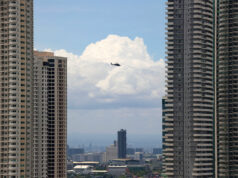
THE tax collection performance of the Philippines is below potential, the Asian Development Bank (ADB) said, pointing to the need for a review of tax policy.
In a paper, “Digital Transformation of Multilevel Tax Policies and Administration for Resilience and Sustainable Growth,” the ADB said collection performance lags the region because the Philippine tax system is poorly designed.
It also said that while digitizing tax administration may help improve collections, the Philippines must still assess policy and consider institutional reforms.
“Partial approaches that digitize some processes and procedures with static models of tax administration, and without addressing policy reform options in some Asian countries, such as Pakistan and the Philippines, have not had much impact other than ‘pouring concrete on the digital transformation.’”
It also noted that the Philippines’ ratio of VAT revenue to consumption remains one of the lowest in the world.
“Extensive exemptions and domestic zero ratings vitiate the efficiency advantage of a VAT, as well as restricting the revenue potential,” it said.
Other key issues in the country’s tax system include the high corporate income tax rate and “dysfunctional” property tax, it said.
“Given the difficult experience of dealing with the fallout from the Asian financial crisis in the 1990s, the Philippine authorities have been careful about not breaching prudential limits, even limiting the extent of the countercyclical fiscal easing during the COVID-19 pandemic,” ADB said. — Beatriz Marie D. Cruz



